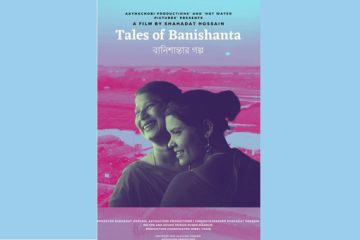Film Southasia 2013 to be held in Kathmandu
 Women’s claustrophobic lives in an Afghanistan prison, horrific human rights abuses of the Sri Lankan civil war, migration, environmental havoc or plain narratives–these are just a few subjects of the documentaries to be screened at the upcoming Film Southasia 2013 in Kathmandu, Nepal. Starting October 3, over four days, film buffs can look forward to films that cut across
Women’s claustrophobic lives in an Afghanistan prison, horrific human rights abuses of the Sri Lankan civil war, migration, environmental havoc or plain narratives–these are just a few subjects of the documentaries to be screened at the upcoming Film Southasia 2013 in Kathmandu, Nepal. Starting October 3, over four days, film buffs can look forward to films that cut across
the swathe of South Asia.The documentaries come from Afghanistan, Bangladesh, Burma, India, Nepal, Pakistan and Sri Lanka. Many are either collaborations or individual endeavours of foreign filmmakers working in Southasia.
From Bangladesh come films like “Are You Listening!” (Shunte Ki Pao!) directed by Kamar Ahmad Simon and produced by Sara Afreen, “Bishkabbo” (The Poison Teller) by Shabnam Ferdousi and “Hartalnama” (The Strike) by Farid Ahmed. The films deal with the hard contemporary realities of Bangladesh. “Shunte Ki Pao!” journeys into the precarious lives of a family who struggle to pick up the pieces of their lives after a tidal surge devastates their coastal village Sutarkhali. “Bishkabbo” is a story of three slum dwellers who sell insecticides in Dhaka. At one stage they realise that there is no difference between a cockroach and themselves. The life of insect and man merge disconcertingly. “Hartalnama” is a hardhitting film that traces the glorious history of the hartal and its present violent and politicised face.
Critically acclaimed “Shunte Ki Pao” is the first Bangladeshi film to win the Grand Prix at the 35th Festival Cinema Du Reel in Paris.
Other Southasian countries are not to be left behind. “Algorithms” (India) directed by Ian McDonald is the first feature documentary on blind chess. “Celluloid Man” (India), based on the life and work of PK Nair, founder of the National Archive of India, was awarded the National Film Award (India) for Best Historical Reconstruction. Dylan Mohan Gray’s “Fire in the Blood”, too won much acclaim. The story of the exploitation of African countries and the South by western pharmaceutical companies and governments, “Fire in the Blood” was selected for the Sundance Film Festival.”
Juliet Lamont’s “Miss Nikki and the Tiger Girls” is an incisive and entertaining story about Burma’s first girl band. Women’s claustrophobic lives in an Afghanistan prison is the subject of “No Burqas Behind Bars” by Nima Sarvestani. Pakistan is represented by “Saving Face” among others. The film, presented the Academy Award for Best Documentary Short Subject, recounts the stories of two acid attack survivors.
“No Fire Zone: The Killing Fields of Sri Lanka is the story of some of the worst war crimes and crimes against humanity of recent times. The film by Callum Macrae has received much praise for its bold journalistic endeavours, says Nishchol Oli, programme coordinator for Film Southasia 2013.
Nepal’s “Playing with Nan” by Dipesh Kharel and Asami Saito is the unusual story of a Nepalese man who migrated to work in a Nepali restaurant in northern Japan.
“This year’s FSA is definitely different from its past editions. We are featuring more student films, more experimental shorts; there are two global films that contextualise South Asian issues on a larger global scale. We are also hosting two packages, one in association with National Institute of Design’s Alpavirama Festival and the second one that focuses solely on the country of Afghanistan,” says Oli.
The documentary has clearly gone beyond the soporific, simple narrative accounts of yesteryears. FSA’s motto “Documentary is Cinema!” says it all.
-With The Daily Star input

